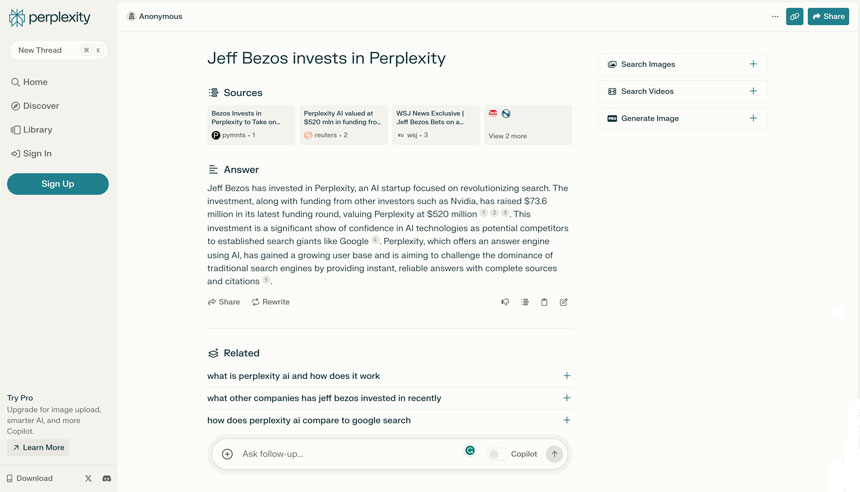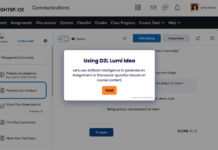IBL News | New York
Perplexity — an AI-powered search engine with one million iOS and Android users and $3 million in annual recurring revenue (ARR) — announced yesterday it raised $73.6 million in funding, leading to a valuation of $520 million post-money — a multiple of around 150 times its ARR.
Established in August 2022, this San Francisco-based start-up, with a staff of 40 employees located in a co-working space, says that it plans to go after Google’s dominant position in web search.
The funding round was led by IVP with support from Seed and Series A investors NEA, Elad Gil, Nat Friedman, and Databricks, as well as new investors NVIDIA, Jeff Bezos (through Bezos Expeditions Fund), Tobi Lutke, Bessemer Venture Partners, Naval Ravikant, Balaji Srinivasan, Guillermo Rauch, Austen Allred, Factorial Funds, and Kindred Ventures, among others.
“The times of sifting through SEO spam, sponsored links, and multiple web pages will be replaced by a much more efficient way to consume and share information,” explained Aravind Srinivas, Co-founder & CEO of Perplexity, in a blog post.
He presents the company’s new Copilot product this way:
“It’s an AI research assistant that has changed how we uncover information and learn more about new topics. Copilot tailors search queries with custom follow-up questions, introducing the concept of generative user interfaces. It removes the burden of prompt engineering and does not require users to ask perfectly phrased questions to get the answers they seek. This enables users to gain more relevant and comprehensive answers than other AI chatbots, traditional search engines, or research tools. Copilot has seen strong traction, especially among academics, students, and knowledge workers who rely on frequent research for their day-to-day work and needs.”
In other words, Perplexity says that its advantage is based on using advances in AI to provide direct answers, instead of website links, in response to search queries, without some of the limitations felt by larger companies.
“If you can directly answer somebody’s question, nobody needs those ten blue links,” Srinivas said. Google has begun rolling out a feature that provides lengthy summaries in response to some search queries.
Microsoft has struggled to make a dent in Google’s share of the search market since it introduced a version of its Bing search engine that can act like a chatbot.
Neeva, a search start-up that used generative AI to provide direct answers, shut down last year after it failed to gain enough traction to compete with Google.
Perplexity maintains its index of webpages, which it combines with a mixture of AI technology it has designed itself and purchased from outside providers such as OpenAI.
The company, still not profitable, charges $20 a month for a more powerful version of the search engine that uses GPT-4, OpenAI’s most advanced technology.
.


 En Español
En Español




![OpenAI Released Apps that Work Inside ChatGPT and an SDK [Video]](https://iblnews.org/wp-content/uploads/2025/10/openaieventday-218x150.jpg)








![Apple Marketed Its New iPhones As a Best-In-Class Hardware, Not As an AI Device Maker [Video]](https://iblnews.org/wp-content/uploads/2025/09/iPhoneair-218x150.jpg)







